As I am currently reading up on Gaia (or Earth System Science), I felt struck by serendipity when I saw that philosopher Mary Midgley was coming to the University of East Anglia to give a lecture on humanism as part of the Philosophy and Environment Public Lecture Series 2010. Mary Midgley is, perhaps, the most eminent thinker to have taken Gaia from the realm of natural science, where it was first conceived by James Lovelock, and into philosophy. She argues that Gaia chances everything about how we look at the world (for those of us accustomed to reductionist and positivist thinking) and opens up for a more whole, integrated and realistic view of reality.
So, I went to the Philosophy Department to see if I could arrange an interview with Midgley and to my surprise I received an email from her a few days later agreeing that we could meet after the lecture. At this point I was quite excited (I am a bit of a fan so the correct word would probably be starstruck) but also a little nervous because it has been said about Midgley that she “may be the most frightening philosopher in the country: the one before whom it is least pleasant to appear a fool”. So I felt slightly apprehensive about our meeting, and wondered whether I would walk out of it like a fool.
I shouldn’t have. Our talk was very friendly and Midgley, now 91 years old, is keen to pass on her thoughts to the next generation, as she put it herself. Eventually, I found that my questions were perhaps to big, or too general, for us to really give them the treatment they deserved. I was hoping to get an easy answer to my questions about what ‘sustainability’ means in a Gaian perspective and, alas, my PhD is not going to be as easy as receiving an answer from the oracle on that one.
This is the transcript of the interview (I wanted to put out interview as a podcast but due to the rather noisy environment, the interview is inaudible in places). I finish this post with a few reflections and further questions to delineate what Gaian sustainability might mean.
JDG: Lynn Margulis has said somewhere that “the heuristic value of [Gaia] is unprecedented in modern times” and Gaia theory has been compared with a paradigm shift similar in magnitude to the move from the geocentric to the heliocentric worldview. In your view how does Gaia affect our understanding of our species’ place on Earth?
MM: Well yes, I think she’s right, this is a very profound change because we have always before started from the human race and considered the environment as something that existed around it, and it as the centre. If you start by thinking about the whole and move inwards, you get a completely different perspective. I think that the extraordinary importance that has been attributed to the human race in our culture really wouldn’t have arisen if we weren’t starting from within, so to speak. I take that to be a fairly straight forward point. Does it surprise you what Lynn Margulis says?
JDG: No, I’m really interested in the move from the anthropocentric to the ecocentric worldview. And in relation to this, you have written about two aspects of Gaia – one associated with scientific inquiry and one that relates to our personal and collective imagination. You have also said that “science cannot actually get started at all until other kinds of thinking have laid the conceptual foundations on which it stands”. What does the imaginative element of Gaia mean for scientific inquiry?
MM: I suppose the order in which things have been inquired into, the order in which topics were taken up has been moved very much by human convenience. Physics developed notoriously in the context of cannonballs. Physics developed before biology really, in an interesting way, but when biology began to develop in the 18th century again a lot of it centered on human use. The order in which it was done was ruled by that and the fact that people have been so slow to see the effect we’ve been having on the environment is accounted for by this, isn’t it? The notion that all physical matter is a pile of resources there for use really does make a difference to the order in which one looks at it. What I am saying is a very simple point but I would have thought it was the first thing one would have to say.
JDG: Yes, a simple thing with far reaching implications, perhaps. In a conversation with one Professor in the Department, I asked what her thoughts were on Gaia and she replied something like: “It is interesting and provocative, but I am not sure where it takes us”.
MM: Ah, so “I’m still sitting were I was sitting, and I don’t see there has been a move yet”.
JDG: Yes, so the idea is that it’s not clear what role human agency and responsibility play in Gaia. So, e.g. if the earth system moves in a certain direction, what does this imply for humans? If we are causing Gaia to change to a state that is less favourable for life, can we be part of any solution?”
MM: Well, indeed. It’s a point which people still aren’t thinking about at all. In fact James Lovelock thinks it is too late because it is such a big jump, which your colleague made perfectly clear when she said she wasn’t sure what to do with it. Such jumps take some time if they are left to the ordinary development of thought, don’t they? Planck is said to have said that scientific doctrines don’t go away till all the people who believe them die, which is not quite true I am told, but something like that. People have to get used to a new way of thinking and that’s hard to do.
JDG: I’m guessing that the sentiment expressed above could relate to a metaphor sometimes used by James Lovelock which likens humans to a form of planetary disease. Is Gaia anti-human?
MM: Well, the question is how anti-Gaia are humans, isn’t it? There’s a conflict between what we’ve been innocently trying to do and a healthy working planet. The reason for personifying it, is to make it easier to see it as a whole, and that is something that we need to do. [next sentence inaudible due to background noise]. It is, I should think, unhelpful to think “is Gaia for us or against us”, so to speak. We have some choice if you think of it. If you find somebody is on a ship and it is moving in some particular way, the first thing you do is to try and find out what the ship is doing. We have to find out how it works as far as we can. We do know a great deal about what we shouldn’t be doing, it is just that it is politically very difficult to change it.
JDG: That leads me to my next question. As my research focuses on grassroots innovations for sustainable consumption I am interested in what a Gaian perspective on sustainability looks like. In ‘Earthy Realism’ Brian Goodwin says “We shall either succeed in becoming integrated with natural principles or we shall not”, which seems to be the bottom-line. So is ‘sustainable consumption’ really an oxymoron in Gaian terms or can we learn to consume sustainably?
MM: It is obviously very difficult to do that. [Inaudible] What surely can’t be sustained is much of the way that we go on at present, but human life and the basic ways of living life lives should be sustainable. There is sort of a trick about talking of things that are sustainable, because very often things that people actually want at the moment aren’t sustainable yet the essentials of human life are sustainable.
JDG: So, suppose we collectively grapple with what you call our present ‘conceptual emergency’ and come to terms with Gaia – what’s next?
MM: I suppose we would all make much more effort not to use so much fuel and so forth, I mean there are fairly straightforward things we can start to do. And to increase as far as possible everybody’s understanding of this emergency. It’s appalling how stuck inside our culture we are. I was thinking this about the eugenics business, you know. It seemed absolutely obvious to any scientifically minded person to take that view [in her lecture Mary Midgley explained how eugenics was commonly accepted in the early 20th century]. So, I mean it never seems to do much good asking whether it is possible to realise all that change in human thought and feeling. We have to try.
JDG: I’m thinking if you have places to go for inspiration or practical initiatives.
MM: I don’t know, I am rather ignorant about what is going on. But you got as far as finding my book [Earthy Realism], so if you got that far I should think you have found much more than I have kept up with.
JDG: Patricia Spallone has described how she felt surprised at an international women’s conference on health and reproductive technologies in Bangladesh when she discovered that many of the women from more traditional societies in the so-called developing world did not make a conceptual distinctions between the human body and the land. What role do you think indigenous knowledge plays in building a Gaian culture?
MM: Quite a lot of people have managed to take in some of it, and some of it has percolated among people like you and me who are interested in these things. It’s a bit gradual but I think it’s received and used much more widely than it was quite recently. Because we are beginning to realise how much we lack and the mess we’ve been living in. It’s an excellent thing.
JDG: Do you think there is any relation between Gaia and indigenous knowledge?
MM: People in more traditional societies necessarily are more realistic about their dependence and are trying to understand what the plants are doing all around them. Because we’ve become so detached and so urbanised we’ve drifted away from this to a large extent. We don’t know an awful lot of things that even our recent ancestors did about vegetation and so on. Not necessarily that any particular tribe is particularly hot on… do you know what I’m saying? But simply from where they stand they are much more realistic. It is more a fact about us that we have drifted right away from a realistic understanding of the world.
JDG: There was a question put to you in your lecture about humanism which was close to I question I had but didn’t ask. Which is that if you take the hierarchy away from evolution and have a more horizontal view of where we are in relation to other species the whole developmental thought [i.e. that humans are the apex of evolution] around evolution disappears?
MM: Surely. And you’d never think of making the actual suggestion that we are the peak of it, I mean it doesn’t have a peak. What would elephants think? [Laughs]
JDG: But then we end up with a view that our particular form of consciousness is special because we can appreciate birds or…
MM: It is special for us. We should take it very seriously and all the faculties that we have. But there’s no point in worshipping the human anymore.
So. Where does this leave me? What can research focusing on ‘grassroots innovations for sustainable consumption’ learn from Earth system/Gaia science? What would Gaian principles of sustainable consumption look like? Asked whether ‘sustainable consumption’ is an oxymoron, Midgley pointed to a ‘trick’ in talking about sustainability. The word ‘sustainability’ has lost much of its meaning in the same way as ‘green’ has. Many, if not most, things ‘green’ or ‘sustainable’ are packaged products in a system of production and consumption which is inherently unsustainable. Some would argue that the discourse of sustainability has run its course and that the concept is too open-ended to be useful, and is perhaps even counterproductive.
Well, here’s my stab at a quick definition: ‘consumption of resources by a population in a manner that will sustain both population and resources’. Open-ended indeed. Useful? Probably not. But if ‘to integrate with natural principles or not’ is the bottom-line, our definition becomes both succinct and possible to operationalise. It then simply means that human societies should integrate into and imitate the relationships observed in ecological systems without degrading the natural environment. We’ve ended up at permaculture (see e.g. David Holmgren‘s 12 design principles in ‘Permaculture – Principles and Pathways Beyond Sustainability‘).
And if we take Gaia to be the context for thinking sustainable consumption we have to ‘ start by thinking about the whole and move inwards’. The significance of viewing our relationship with nature in this perspective cannot be understated. It changes everything in terms of how we look at society and, perhaps more importantly, in terms of how we understand ourselves. Finding our place in Gaia requires answers to such basic questions as ‘who are we’? and ‘what is our place amongst all the other living creatures on the planet’? An entire new set of values are bound to arise from these questions. The way we think about limits, scarcity and resource distribution will change.
And once all these questions have been asked, we have to face another set of questions about how we get from here to there. What is a practical path to Gaian sustainability? How do we go about enabling it? Probably not by narrating the human race as the villain or as a disease… We will potentially have to find a different way to be human. But Gaia is not new and we have been living with her, sustainably, until recently in Earth history. The line of thought that took me to permaculture points to this. If indigenous peoples are still more realistic about their relationship with the land, indigenous knowledge is a source of insight into what a sustainable culture could look like. Science is itself revealing how interconnected the living community of planet Earth is. We are not without clue.
What is certain is that continuing to view of the human as standing either outside of nature or on top of it does not lead anywhere particularly attractive. I guess it will take an effort on behalf of all of us to get unstuck in our culture, to paraphrase my distinguished interviewee.
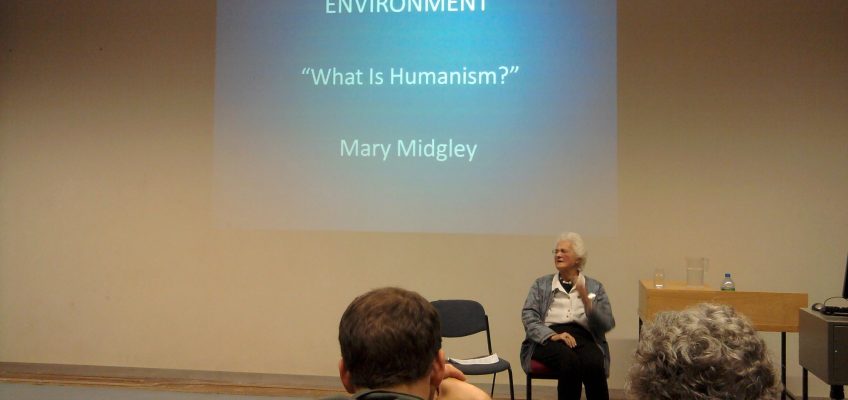
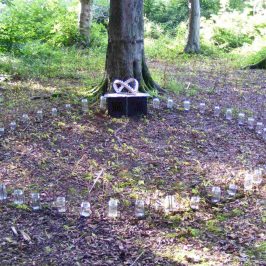
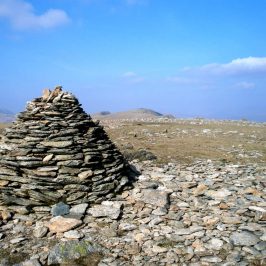

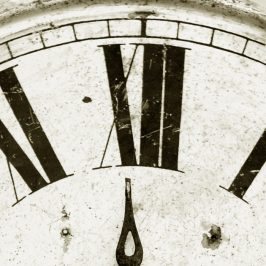
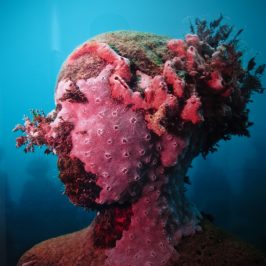
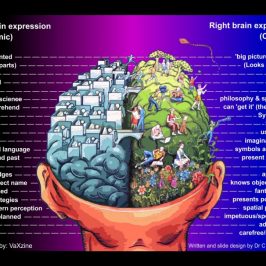
Leave a Reply